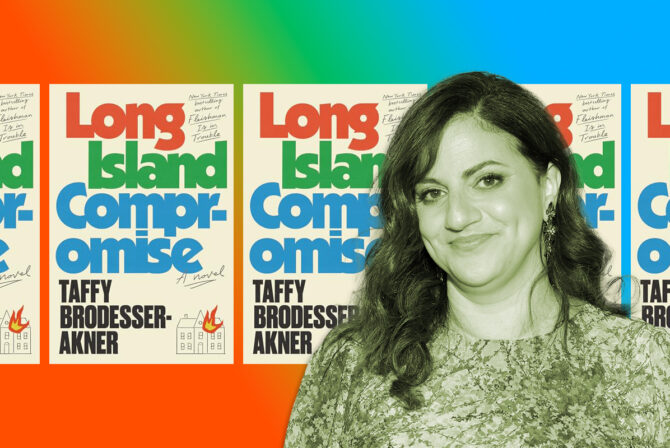I’ve been a type 1 diabetic since I was 3 years old. I’m now 31. I can’t pinpoint a time when anyone told me that having diabetes would affect my ability to carry a pregnancy, but I’ve always known that it would.
Even as a first-year college student, with boys on the brain and marriage barely on the periphery, I started researching other ways to have children. At 20, I wondered if I should freeze my eggs, but didn’t pursue it. I thought about adoption and struggled to confess to myself that I wasn’t sure I could truly bond to an adoptive child. Though it shamed me–and still shames me–that I don’t see myself as a candidate for adoptive motherhood, I was still looking for ways to be a parent. One day, several years ago, I encountered an article in the New York Times magazine about a woman and her husband who’d had a child via a gestational surrogate. Finding my life partner, my husband, was still far off, but I read the article several times. I suspected I’d found the right option.
As of this writing, my husband and I have been married for nearly two years. First we wavered on adding to our family (we believe the two of us constitute a family in itself). The issue was primarily my struggles with depression and resulting low energy. Although I’m able to rally when necessary, I require more sleep and downtime than most people. My husband and I wondered if we’d have the energy and resources to care for a child.
Abruptly–I can’t say how or when–our perspective changed. It would be hard, yes, but we wanted a child; we would do what we had to do in order to love, care for, and protect that child, and would have to lean on others for help as needed. We’re fortunate to have the resources to be able to do that. This made us guilty; would we be unfit to parent if we had no money for childcare? Ultimately we reasoned that we’d been faced with enough hardships in our lives; dwelling on hypothetical hardships we’ve been fortunate enough to avoid didn’t make sense. Steeped in gratitude, we decided to try to get pregnant.
We both fretted: my blood sugars were never quite as stable as they needed to be and I had issues with my thyroid that exacerbated my diabetic control. We lost hope, found hope, then lost it again. My endocrinologist said that, while I was en route to be able to try to conceive, I couldn’t begin quite yet. She suggested I make some other doctors’ appointments to make sure everything that could affect my pregnancy was alright. It was then that she suggested seeing an eye doctor.
When I saw my ophthalmologist, I learned that I had retinopathy, or nerve damage to the eyes. My doctor, usually youthful, upbeat, and partial to off-color jokes, suddenly looked his age when he delivered the news. Treatments would have to be done. Pregnancy might be contraindicated.
Because pregnancy doubles the blood volume in a woman’s body, the pressure on the small blood vessels in my eye would increase significantly, thereby potentially worsening the retinopathy to the point of vision loss. It wasn’t a hard decision to opt against a natural pregnancy. My husband struggled; he’d never thought about a non-traditional path to children. But I felt differently, almost relieved. I’d always sensed that my body wasn’t cut out for pregnancy; now, as a couple, we knew the truth and could move forward. We began to look for gestational surrogates.
Judaism has a lot to say about gestational surrogacy; it asks, who is the mother–the carrier of the child or the egg donor? Could there be two mothers in the case of a gestational surrogate?
Most of the Jewish sources I’ve read and rabbis I’ve contacted suggest that the identity of the mother belongs to the surrogate herself, the woman who carries the pregnancy. Some sources specify that both the surrogate and the egg donor should be Jewish in order for the child to be Jewish. This appears to be the dominant opinion within Orthodoxy, but there are other Orthodox thinkers who believe the gestational surrogate does not affect the Jewishness of the child, which is solely determined by the identity of the genetic mother.
Initially, this seemed like a mere formality. I’m Jewish, my husband’s Jewish–of course a child bearing our genetic material would be Jewish! But after reading some sources on the issue (in particular, a book called
Jewish Law and the New Reproductive Technologies
), my mind slowly changed. Eventually it made perfect sense that the identity of the woman who sustains the life of our child as s/he becomes a person matters. I have no doubt that the bonding that occurs within the womb affects a child, in ways mostly unknown, for the rest of his or her life. It became important to me, not just a technicality, that our carrier be Jewish and, more importantly, that she felt a connection with Judaism.
The process has been hard for my husband. Although our fears are the same–that our child won’t feel as connected to us as other children feel to their parents because I did not carry the pregnancy, or that our child will feel like an outsider among other kids whose parents had them the “normal” way–our reasons for wanting a Jewish surrogate differ. My husband has gotten used to the idea of a gestational surrogate, but it makes him uncomfortable–practically indignant–to imagine anyone but the two of us forming any significant element of our child’s most basic identity. For him, a Jewish surrogate is important so that we don’t have to convert our child, which he fears might alienate our child from us and from Judaism. For me, a Jewish surrogate is important so that all of our child’s connections–from the womb forward–are steeped in Jewish tradition.
Like this post? Get the best of Kveller delivered straight to you inbox.







